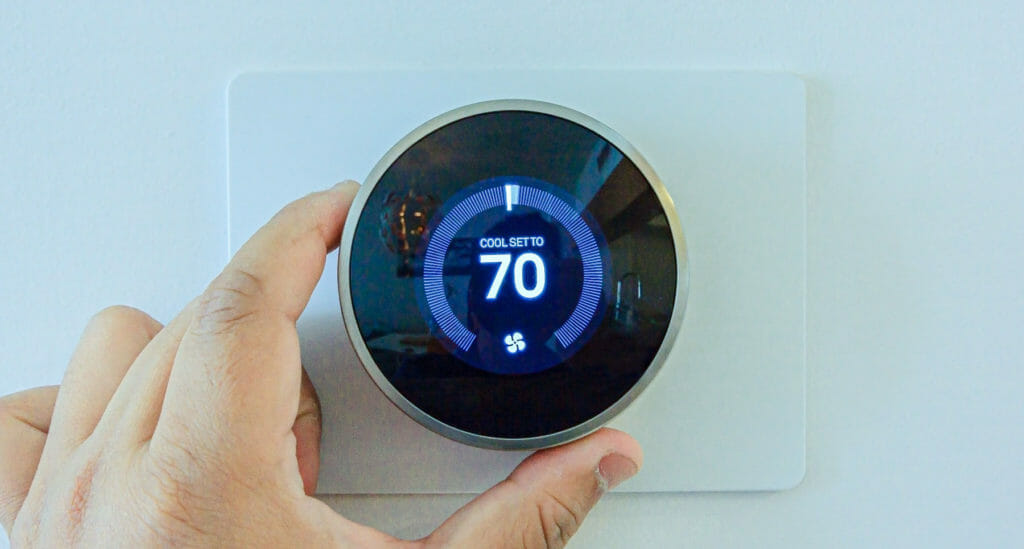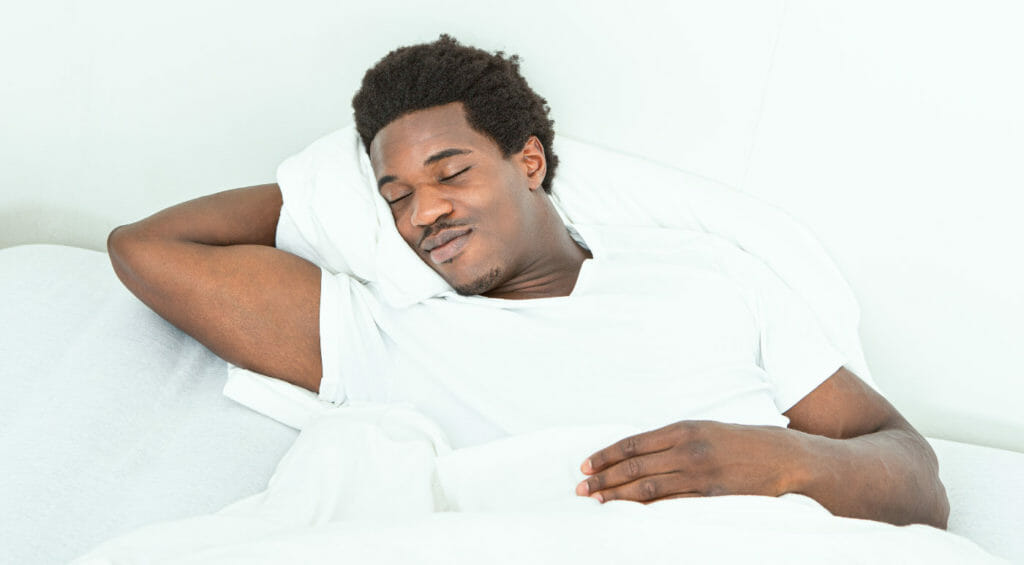
Sleep is critical for human survival. It contributes to both your physical and your mental health, and when you fail to sleep enough, your brain suffers. You’ll feel sleepy the next day, and you’ll be unable to concentrate at work. Eventually, you may develop memory loss, your stress levels rise through the roof, and your physical health takes a turn for the worse.
Sleep deprivation has been linked to many adverse effects in the human body, including an elevated risk of hypertension, stroke, heart disease, kidney disease, and even diabetes.
Many factors can affect your ability to get a good night’s rest. Living in a neighborhood that is noisy at night can be a contributing factor, but many disruptive factors are less obvious. For example, you may not realize that the temperature of your room and, more specifically, your bed, can also affect how well you sleep.
So what’s the best temperature for sleep? Let’s find out.
Temperature Regulation During Sleep

It is normal for your body’s temperature to fluctuate within one or two degrees during the day based on both internal and external factors. For example, if you walk outside on a chilly day, it’s normal for your body’s temperature to fall a bit.
But while it might seem obvious that your temperature changes during the day, many people do not realize that their bodies go through a similar process while they are asleep.
As your body prepares for sleep, it starts to reduce its temperature. This is normal, as it has been found that a cooler body temperature can lead to improved sleep. And while there will be some variation during the night, your body’s temperature will usually stay at least one or two degrees lower than it was during the day.
If you find you’re sleeping too hot, you could look into buying a mattress, sheets or a mattress pad designed to keep you cool.
How Temperature Affects Your Sleep Quality

Before we determine the best temperature for sleep, let’s first consider how different temperatures affect you. Several studies can provide us with more insight.
Researchers at Harvard University in Massachusetts explain that temperature is actually one of the most important factors that regulate sleep. Without reaching an ideal temperature, the body is unable to go through all of the important processes that need to occur during sleep. And that results in sleep deprivation, which can lead to a large number of health concerns.
These researchers conducted a survey of 765,000 individuals throughout the United States. Data were self-reported from 2002 to 2011, and then analyzed to help the researchers determine how temperature affects our ability to sleep.
One thing was certain when the researchers looked at the results of the survey: higher temperatures raised the risk of a person getting insufficient sleep. The researchers went on to suggest that climate change is one of the major contributing factors to the increase in temperature that causes people to lie awake at night.
In another scientific publication, researchers at Flinders University in Australia explained that their findings suggest an increase in the body’s core temperature seems to have the most significant effect on sleep maintenance insomnia. This type of insomnia is when a person can fall asleep, but isn’t able to sleep consistently throughout the night. Instead, they wake up frequently, disrupting the various sleep phases.
The researchers explained that some evidence also points to a link between improper thermoregulation and sleep onset insomnia. In this kind of insomnia, the person would find it difficult to fall asleep in the first place. Combined with sleep maintenance insomnia, the effects could be devastating.
What Is the Best Temperature for Sleep?

Different studies have suggested different answers to the best temperature for sleep. So how do you choose?
While you’ll see lots of general suggestions online, we’ll look specifically at what science says is the best sleeping temperature. This way, you can set your nighttime thermostat based on evidence and enjoy the benefits of more peaceful sleep.
To better understand the best temperature for sleeping, let’s review a study conducted by researchers at the North China Electric Power University. The study exposed college students to four different temperatures while they were sleeping. The variety of temperatures matched the relatively narrow fluctuations that often occur during sleep:
- 28 degrees Celsius
- 32 degrees Celsius
- 36 degrees Celsius
- 38 degrees Celsius
The participants wore sleep monitoring belts to measure their sleep performance and quality. The researchers found that those who were exposed to higher temperature ranges (36 and 38 degrees Celsius) experienced the most trouble sleeping.
The study participants who were exposed to 28 and 32 degrees Celsius while they were sleeping had better sleep quality than those exposed to the warmest temperatures.
However, these temperatures are still quite high — 28 degrees Celsius is 82 Fahrenheit! To get the most benefits from temperature regulation, The Sleep Council recommends keeping your bedroom between 16 and 18 degrees Celsius.
When a room is kept cooler at night, you’ll generally fall asleep much faster. A cooler sleeping temperature can also have other health benefits. One study found that a cooler overnight temperature may assist in regulating the hormone system.
Plus, a room that’s too warm could cause you to sweat excessively, which could wake you up. So really, picking the best temperature for sleep means making sure your room is cool but comfortable.
Additional Resources on Common Sleep Questions
How Many Hours of Sleep Should You Get?
How Much REM Sleep Do You Need?
Hypnosis for the Struggling Sleeper